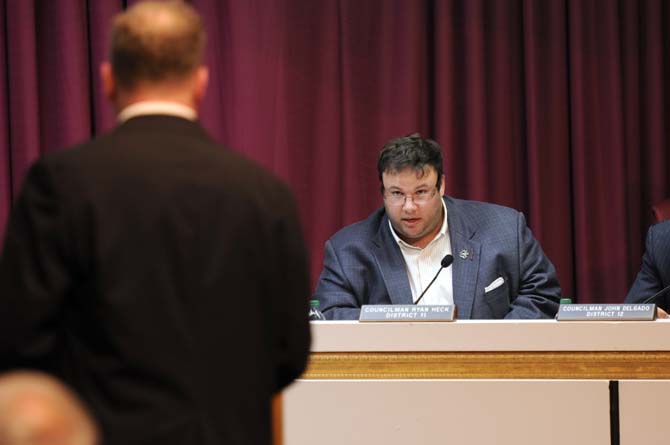For Louisiana’s LGBT community, it is the best of times and it is the worst of times, as the state’s two major metropolitan areas present a tale of two divided cities on the issue of upcoming gay rights legislation.
The New Orleans City Council enacted resolutions Thursday imploring Gov. Bobby Jindal and the state legislature to pass various bills that would outlaw employment and housing discrimination in the state based on sexual orientation.
New Orleans’ progressive proposals echo with special resonance considering the actions of its sister city’s council weeks ago.
On Feb. 12, the Baton Rouge Metro Council refused to even endorse a symbolic gesture in support of Rep. Patricia Smith’s HB 12, which would remove the state’s unconstitutional anti-sodomy laws from the books.
Though Smith views her legislation merely as a “cleanup bill” that would eliminate an outdated law from Louisiana record, HB 12 has seen an outcry from Christian-values lobbying groups like the Louisiana Family Forum.
Despite the efforts of the New Orleans City Council, a bill that would outlaw housing discrimination based on sexual orientation was killed in the House Commerce committee Monday, making it still legal for landlords to turn away potential gay tenants in Louisiana.
Michael Beyer, a political science sophomore, pointed to the fact that New Orleans “has a super majority of Democrats” as an explanation for their endorsements of gay rights bills.
“Baton Rouge hasn’t caught up,” Beyer said.
Beyer, who is the panel coordinator for University LGBT advocacy group Spectrum, expressed disappointment that the housing discrimination bill was not able to even make it out of committee.
“It’s still very sad that Louisiana thinks this should be legal. It’s still legal to evict someone from their home,” Beyer said.
University political science professor James Garand acknowledged Louisiana was a “very conservative” state on social issues, but stressed he was not surprised by either city’s response to the proposed gay rights bills.
“New Orleans is known especially as a gay-friendly city,” Garand said.
Baton Rouge remains divided on such issues, Garand said, though there is a large minority of residents who support LGBT causes.
Garand said lawmakers’ opposition to the current slate of gay rights bills were grounded in a symbolic basis.
“Sometimes there are things that don’t affect you one way or another but you still have a strong opinion about it,” Garand said.
As new LGBT bills pass through committees, it remains to be seen whether the state legislature will take the New Orleans City Council’s lead in openly committing to gay rights, or remain rooted, like Baton Rouge’s Metro Council, in more traditional ways of thinking.
BR, NOLA city councils paint a tale of two cities on gay rights
By Quint Forgey
April 2, 2014
Baton Rouge councilman Ryan Heck asks a question Wednesday, Feb. 26, 2014 at a Metro City Council meeting in downtown Baton Rouge.
More to Discover










